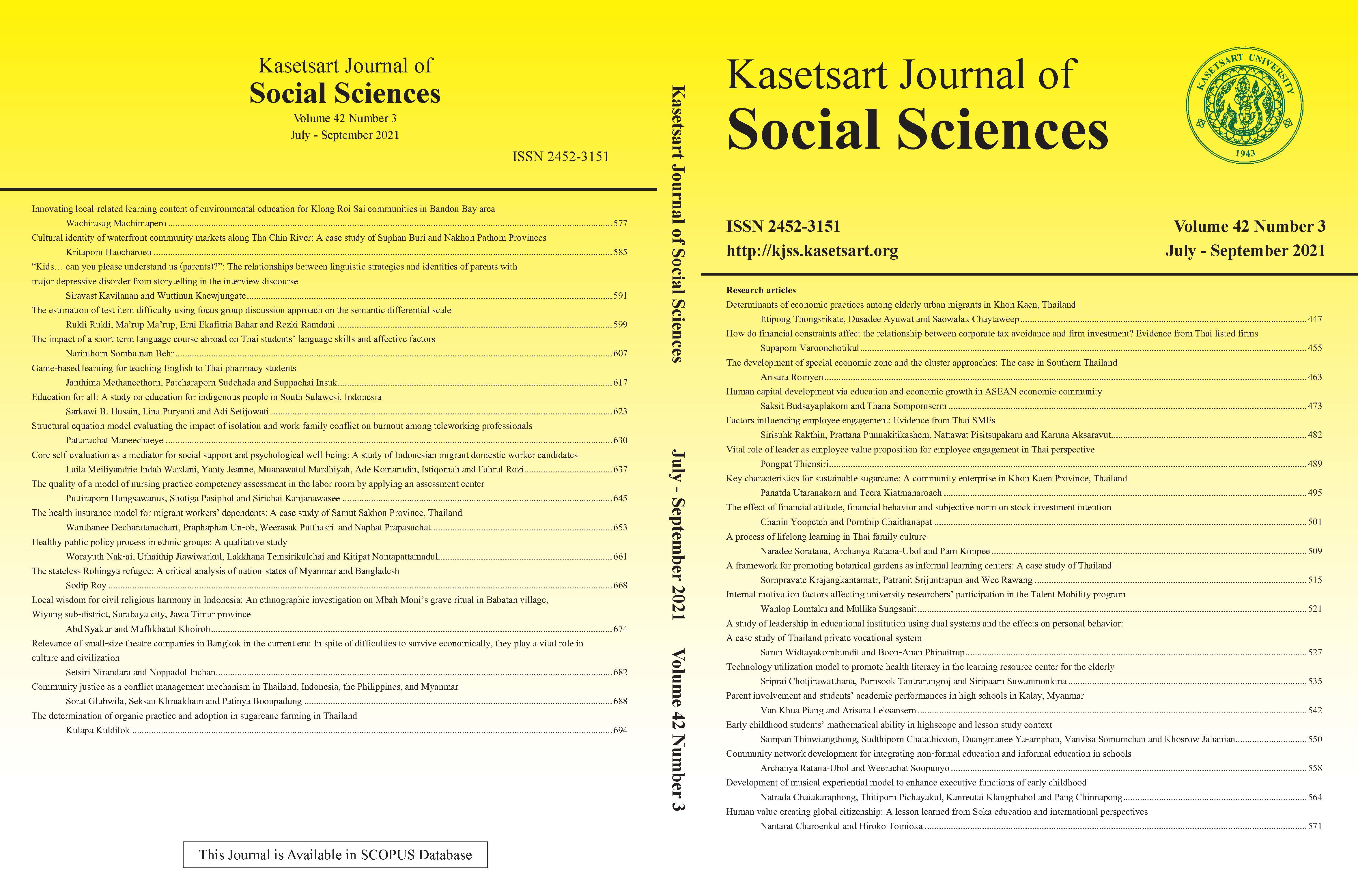Early childhood students’ mathematical ability in highscope and lesson study context
Keywords:
Early childhood students, highscope, lesson study, mathematical abilityAbstract
This research aimed to (1) compare students’ mathematical ability between preand post-stages of implementation of HighScope and lesson study and (2) analyze the qualitative detail of the students’ mathematical ability. This research used mixed methods. The sample group included 42 early childhood students, studying in kindergarten 2 level in the 1st semester of 2019, Demonstration School, Khon Kaen University, Thailand. Research instruments were a mathematical ability evaluation form, field notes, a photo camera, and worksheets. Data were collected by evaluating the mathematical ability and taking field notes and photos. Quantitative data were analyzed by statistics, i.e. Mean, SD., and t-test. Qualitative data were analyzed by applying the framework of mathematics content (National Association for the Education of Young Children [NAEYC], 2010). The results revealed that the post-stage average score (Mean = 3.03, SD = 0.12) on mathematical ability was higher than the pre-stage average score (Mean = 2.85, SD = 0.16) with the statistical significance at the level of .01 and t-value of 5.68. The students were able to express their mathematical ability through five mathematics content: (1) Number and operations, by the idea of groups, number, symbol, and number sense, (2) Geometry and spatial sense, by the idea of line, angle, geometric shapes, symmetry, and dimensional relationship, (3) Measurement, by the idea of comparing sizes, characteristics, and the number of items, (4) Pattern/algebraic thinking, by the idea of number relationship, and pattern of objects, and (5) Displaying and analyzing data, by the idea of representation of their preferred activities in the form of a bar chart.
Downloads
Published
How to Cite
Issue
Section
License

This work is licensed under a Creative Commons Attribution-NonCommercial-NoDerivatives 4.0 International License.
This is an open access article under the CC BY-NC-ND license http://creativecommons.org/licenses/by-nc-nd/4.0/










